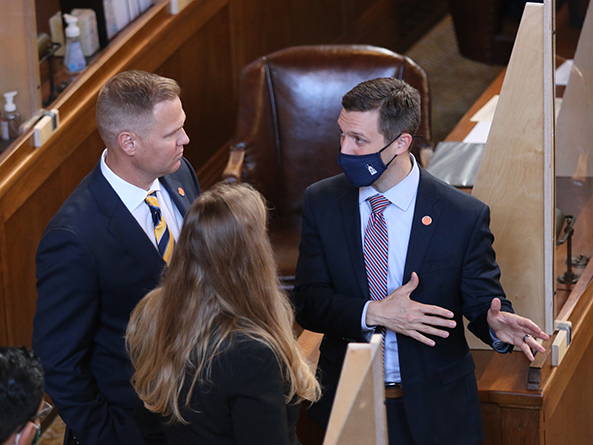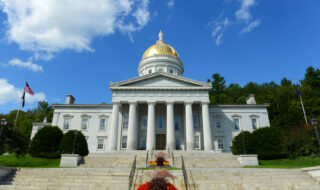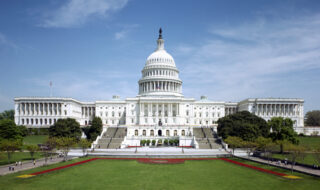April 16, 2021
Paid Leave Bill Advances; Income Tax Surcharge Measure Stalls
State Director Bob Hallstrom reports from Lincoln on the small-business agenda for the legislative week ending April 16
The Legislature will reconvene next Tuesday, poised to give final approval to the $9.7 billion biennium budget. The body has advanced approximately half of the 104 priority bills beyond the first round of debate, leaving a great deal of work to be completed in the final 28 days of the session. The first of the “late-night” (working until at least 7 p.m.) sessions is slated for the upcoming week.
The Road Ahead
Speaker Mike Hilgers (Lincoln) has outlined the legislative agenda for the next few weeks with the Property Tax Request Act (Legislative Bill 408) up for debate next week. The following two weeks will focus primarily on consideration of approximately 20 tax and spending bills.
Other Bills of Interest
The Legislature also took action during the past week on a number of bills of interest to NFIB. The Revenue Committee has indefinitely postponed the following bill:
- Legislative Bill 625 – Income Tax Surcharge: Sen. Tony Vargas (Omaha) introduced LB 625, which would have imposed a surtax, for taxable years beginning on or after January 1, 2022, on high-income individuals for the purpose of providing funds for early childhood education in Nebraska. The bill would have imposed a surtax of 4 percent of the amount of taxable income in excess of $1 million for individuals filing jointly or head of household and 4 percent of the amount of taxable income in excess of $500,000 for all other individuals. (NFIB Position – Oppose)
The Business and Labor Committee, on a vote of 4-2, has advanced LB 290 to General File.
- Legislative Bill 290 – Paid Family and Medical Leave Insurance Act: Sen. Machaela Cavanaugh (Omaha) has introduced legislation that would establish a statewide paid family medical leave insurance program similar to Nebraska’s unemployment insurance system, managed by the state Department of Labor. The legislation would apply to all employers subject to the Employment Security Act (one or more employees), with self-employed individuals eligible to participate funding would be provided for the program through a payroll tax of up to 1 percent of payroll as determined by the Commissioner of Labor.
The bill would allow 12 weeks, or 60 workdays of paid leave if taken intermittently, and would base the paid leave upon 90 percent of an individual’s average weekly wage that is at or below 50 percent of the state average weekly wage and 50 percent of the individual’s average weekly wage that is above 50 percent of the state average weekly wage, not to exceed 66 percent of the state average weekly wage.
The bill would also require employers to pay all other benefits that are due to the employee that would have been paid in the absence of leave, as well as all other benefits offered to the employee (vacation, sick leave, etc.) and would require employers to allow employees to return to their jobs after exercising their right to family medical leave. (NFIB Position – Oppose)
- Legislative Bill 260 – Unemployment Insurance – Voluntarily Leave: The Legislature has given first-round approval to LB 260, a bill introduced by Sen. Megan Hunt (Omaha) which amends provisions relating to good cause for voluntarily leaving employment under the Employment Security Act. The bill would extend unemployment insurance benefits to an individual who has left employment to care for a family member with a serious health condition. The bill contains provisions agreed to by NFIB and other business organizations requiring an employee to make all reasonable efforts to preserve employment. The bill advanced to Select File on a vote of 27-11 (NFIB Position – Watch)
Property Tax Request Bill on Tap
- Legislative Bill 408 – Property Tax Request Act: The Legislature is expected to give first-round consideration to LB 408 in the upcoming week. Introduced by Sen. Tom Briese (Albion), LB 408 would prohibit a political subdivision from making a property tax request for any year in excess of 3 percent more than its property tax request in the prior year, except that the political subdivision, by a majority vote by its board, would be allowed to exceed the 3 percent limit for no more than two consecutive years. The bill would exclude that portion of a political subdivision’s property tax request that is needed to pay the principal and interest on approved bonds, or which is derived from the real growth value for the political subdivision and the 3 percent limit would cease to apply to property tax requests after 2027.
Previous Reports and Related Information
- April 2—Tax Reform/Relief Bills Advance
- February 26—A $20-an-hour Minimum Wage?
- February 12—NFIB Members Weigh in on Paid Leave Bill
- January 15—The Legislative Bill Mill Starts Turning

NFIB is a member-driven organization advocating on behalf of small and independent businesses nationwide.
Related Articles














